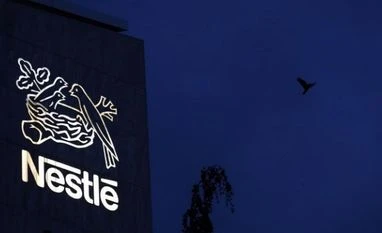On Thursday, when the Bombay High Court set aside that order and asked Nestlé India to get Maggi restested in three regulator-accredited labs within six weeks, it immediately welcomed the verdict. What was unusual was the sender’s details: Dinesh Joshi, head—media, issues and crisis.
Read more from our special coverage on "NESTLE MAGGI CONTROVERSY"
The largest food company in the world by revenue, known for its reticence over the years, is now turning active on the communication front. Hiring crisis management teams has been a trend in the recent past with controversies hitting the corporate world. During the telecom spectrum scam, many engaged specialised managers who strategised on how to deal with difficult matters.
While the controversy regarding presence of higher than permissible levels of lead (more than 2.5 parts per million) surfaced in late May, the company’s response against repeated derogatory statements by Uttar Pradesh Food and Drug Administration officials were restricted to a few press statements — mostly denying the charges.
Nestlé’s communications has traditionally been handled by its internal team, unlike other fast moving consumer goods companies, which regularly hire public relations firms for the job, in addition to their own corporate communication teams.
About a week after FSSAI’s recall order, Nestlé India engaged Genesis Burson-Marsteller, a subsidiary of New York-based Burson-Marsteller (BM), to handle the crisis. Three to four executives from BM are part of the crisis team that is supervised by Prema Sagar – principal & cofounder, Genesis-Burson-Marstellar, vice chair, Asia-Pacific.
BM had earlier managed cases such as the Bhopal gas tragedy, in addition to providing communication solutions to
Shell, Coca-Cola, General Electric, Unilever, Du Pont and ExxonMobil.
“Initially, the firm failed to understand that the conventional attitude it has been operating with in the communication front does not work in this country,” said a person with direct knowledge of the development.
That’s not the only step by Nestlé India. On June 4, it had to fly down global chief executive Paul Bulcke to handle the situation in India.
The meetings between government authorities and the company were a sign of crisis management.
Nestlé India had earlier hired APCO Worldwide, a global public affairs and strategic communications consultancy firm, in the run-up to the June 5 conference by Bulcke to withdraw Maggi ahead of the FSSAI order.
Subsequently, Nestle broke away from its past practice and took journalists to its oldest factory in the country at Moga, Punjab, which also houses its research and development centre, to clarify and showcase its production quality standards.
To top it all, the company brought in a new managing director for its India operations, late last month - Suresh Narayanan, an Indian, after 18 years of a citizen from elsewhere in this role.
)